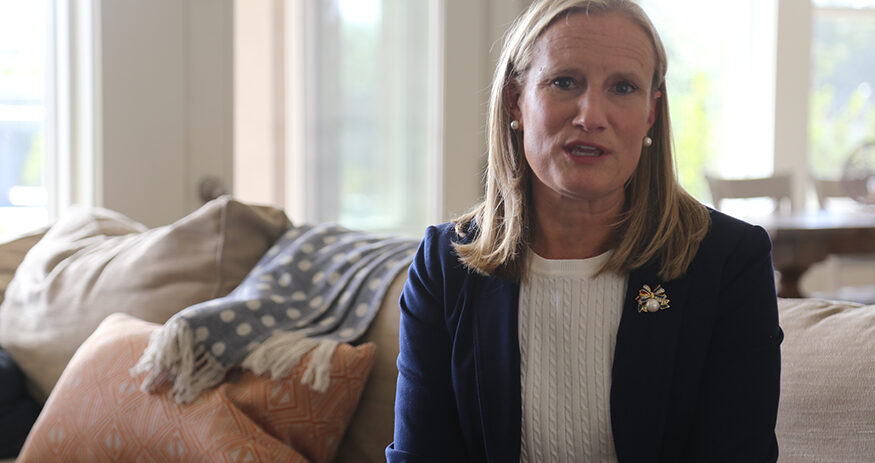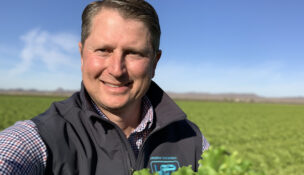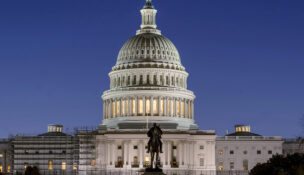Jane Andersen: Standing up to protect democracy
Jakob Thorington Arizona Capitol Times//November 29, 2024//[read_meter]
Jane Andersen: Standing up to protect democracy
Jakob Thorington Arizona Capitol Times//November 29, 2024//[read_meter]
After the rash of accusations of fraudulent elections in 2020 and 2022, Jane Andersen was appointed as the Arizona state director for Mormon Women for Ethical Government, a nonprofit founded by members of the Church of Jesus Christ of Latter-day Saints. They advocate for protecting democracy in government by using faithful, nonpartisan, peacemaking, and proactive methods. In a recent interview with the Arizona Capitol Times, Andersen discussed her role with the organization and its presence in Arizona.
The questions and answers have been edited lightly for style and clarity.
Tell me about your organization and your involvement?
There was a group of women who are members of the Church of Jesus Christ of Latter-day Saints who formed a Facebook group and basically decided “we don’t feel comfortable with this. This doesn’t land with our principles and values.” That Facebook group quickly grew into hundreds of women, and then thousands of women. MWEG has about 8,000 members across the United States, and Arizona – we’re just under about 300 but growing. I’ve been a part of it really since the beginning because that message resonated to me. That principle-based approach to politics and the vision is we’re women of faith trying to build a world that infuses a peaceful approach to politics and holding the government up to standards that are ethical. We’re training women to be civic actors. We’re nonpartisan. We have about 40% Republican, 34% Democrat and 26% independent.
What are some of the things MWEG has done to accomplish its mission?
In terms of empowering women, the big thing is media literacy. They did a lot of campaigns about literacy and how we ingest communications that are coming our way. Also, doing a lot of campaigning to try to teach women to become principled voters. While we encourage women who are members of our organization to have a party affiliation, we definitely try to encourage people to put principle over a party affiliation. A lot of women sometimes are hesitant to use their voice so we have things like an op-ed lab that will help women craft and create communication that they can share. Over the summer, I think there was a lot of discouragement in the United States, so we did a campaign about how to bring hope into your spaces. A lot of our worries are swept up into national conversations, but the truth is that you can make a difference locally, no matter what’s happening nationally.
Were you surprised with how President-elect Donald Trump did in the election?
I wasn’t super surprised. I thought money was really going to carry the day. Representing MWEG, I was a poll chaplain in south Phoenix on Election Day for seven hours. As I watched people’s reactions as they came to vote and who they were interacting with, it became pretty clear that that was the direction that it was going to go. I am surprised because the language and rhetoric he uses is difficult for me. For instance, having a child with special needs and past statements or ways that he’s described or interacted with people with disabilities is challenging to me. Our organization has big concerns about dehumanizing language just as it relates to immigrants and refugees, so I would think more people would have issues with that. One of our pillars that we focus on is protecting democracy, but that seems to have been too far in the past for the issue of January 6th to make a difference for some voters.
You’ve spoken before about how your faith has guided you politically. Can you elaborate?
Just to be clear, MWEG is in no way affiliated with the church and is a separate nonprofit, although we absolutely sustain the doctrines of the Church of Jesus Christ of Latter-day Saints and the leaders. My opinion is not the official representation of the organization because it’s nonpartisan. For me, having studied the science of politics and government, I have a lot of respect for the way that was set up. The process of politics should involve compromise and should involve reaching across the aisle and listening. That very much does not align with the way that I see Trump operating. How that relates to my religious views is I very much believe that the United States is an important beacon on the hill in terms of standing up for democratic norms and values. If we’re not living those principles, where else are they going to be offered in the world? I also highly listen with intent to my ecclesiastical leaders. When they discuss any advice about entering the political sphere, they specifically name three values that are really important and that is integrity, compassion and service to others. That’s not something I see as much with Trump. The focus of the organization is not anti Trump. We have this wide spectrum of people within the organization. The one thing we do agree on is the process of government and I think that’s where we really have some work to do in Arizona. One of our church leaders said we need contested issues to moderate and unify. I don’t know that moderating and unifying is something that we’re going to see in Arizona anytime soon.
What can someone in your role do about the increased divisiveness between folks politically?
I don’t know if you’re familiar with how our church operates in terms of its congregations, but you don’t get to choose what time you go to church. We’re tasked with working together with people that live around us whether or not we agree with them politically and that has some grumpies along with it. People viewed members of our faith as being one party politically or one point of view. There’s a lot more diversity to that. We attend church with people that don’t agree with us and we learn the skills of feeling across lines of difference. Our women are particularly adept at doing that. What we bring to the table in Arizona is the ability to really lean into peacemaking. Peacekeeping is, “We agree to disagree; we’re not going to talk about anything,” and that’s not going to move the needle. Peacemaking is entering hard spaces and having difficult conversations where you know there’s conflict. Conflict isn’t always bad. It just means there’s an opportunity to listen and to learn. The women of our faith are particularly poised to take a role in that. We’re passionate about our communities. We’re passionate about our families, and we’re not afraid to speak up and share our opinions.
How do you feel about the general attitude of the last election? The negativity toward our election systems seems to not be as high.
And that’s for one reason. Because a certain candidate won. Because Republicans won and Republicans fostered the conversation about election denialism, it suddenly went away. I’m a registered Republican. I’m conservative by nature, but I never bought into the election denialism. I’m a huge supporter of Stephen Richer. He’s a personal friend. Bill Gates, Clint Hickman, Rusty Bowers, these are all people who stood up and stood their ground in terms of living with integrity. I still think there’s an issue with protecting democracy. If we have one candidate that was willing to say that the election was stolen and it filters down to a mistrust and distrust in our institutions, that’s pretty dangerous. We have so much dis- and malinformation. We have foreign actors and local actors who try to use that to their benefit.
Former Gov Jan Brewer recently wrote an op-ed published by The Arizona Republic that you, among some others, played “a vital role in building confidence in our electoral process” and are an “unsung hero.” What does that kind of praise mean to you?
It’s not always easy to stand up. I am a conservative Republican and there’s people that disagree with me. Good friends, people in my community – but I think it’s important that when we feel like something isn’t correct and we feel like we have to abide by our principles, we just stand up and do it. There are a lot of people who chose not to speak out at the time for fear that it might affect their career or if they’re politicians, their electability. Protecting our democratic institutions can’t simply come from one side from the left or one side from the right. We have to have people working together who may not agree on anything else, but agree that we want our institution to be trusted.
What kind of impact are you looking to make at the state level?
Having this new position as a state director in Arizona, we are definitely going to be looking at specific things happening in the state Legislature, which would be protecting democracy, immigration, rooting out racism – things related to children and families. There will be more of a lobbying presence from MWEG to show up in a measured way. I’d love to work with other organizations like the Arizona Democracy Resilience Network and other groups that really want this bipartisan approach to governing. If might is right, then we’re just going to seesaw with whoever’s in power. I’d love to have legislators stand up and represent civic virtues and respond to the needs of our citizens. We have some really good people serving the Legislature. I’d love to call on their better nature and have them lead out in a way that reaches to the exhausted majority in the middle because that’s where most people are.


















